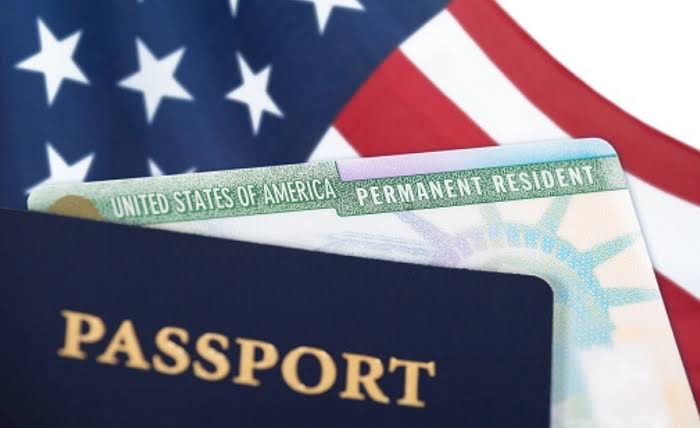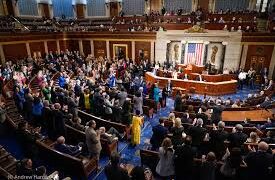In a recent report, it has been revealed that Nigeria is one of 20 countries whose citizens received permanent resident (PR) green cards in the United States in 2022.
According to data from the US Department of Homeland Security, Nigerians received 12,385 green cards to migrate to the US. In comparison, the data shows that Mexico and India are the largest suppliers of new permanent resident permits in 2022. These two countries combined accounted for 265,784, or 26 percent of the total new permanent resident permits.

It was also revealed that a total of 1,018,349 immigrants received PRs worldwide this year, including 82,117 green cards for African nationals. The breakdown of the Nigerian PR admission class was 7,529 immediate family members of U.S. nationals, 818 through family-sponsored requests, 3,213 through workplace requests, 14 through diversity programs, 797 as refugees and asylum seekers, and 14 through a broad range of other admission classes.
In terms of asylum, 259 people were granted asylum in Nigeria in 2022, a significant increase from 61 in 2013. In terms of naturalization, 9,545 people were naturalized in Nigeria in 2013, and that number increased to 14,438 in 2022.
Data on people admitted as non-immigrants showed a decline from 157,509 in 2013 to 78,104 in 2022. Non-immigrant admissions in 2022 included 56,482 people in various categories, of which 14,092 were people who received student visas and exchange visitors, 3,550 were temporary workers and their families, 3,122 were diplomats and other representatives, and the rest were distributed among other classes and unknown categories. Overall, these figures reflect migration patterns and socio-economic factors that influence Nigerians’ decision to migrate abroad.
They show that Nigerians who are close relatives of U.S. nationals are more likely to obtain permanent residency, closely followed by those who obtain permanent residency due to employment opportunities.

“It shows more Nigerians are doing things right. As much as we talk about negative things, we must also acknowledge that there are Nigerians doing the right things abroad to legally secure green cards,” said Sam Ogbede, an international relations expert.
Since the 1980s, migration has been deeply ingrained in the psyche of the Nigerian middle class, driven by well-known factors such as high unemployment, security concerns, lack of infrastructure, and poor governance. Since migration requires resources, immigrants are usually from middle-class backgrounds.
The number of Nigerian immigrants living in the United States has grown rapidly from a modest population of 25,000 in 1980.
According to the 2022 American Community Survey (ACS), 712,294 U.S. residents were of Nigerian descent.
According to the United Nations Department of Economic and Social Affairs, “Data is needed to ascertain whether progress is being made. Migration statistics and indicators allow us to track the progress made towards achieving global commitments such as the Sustainable Development Goals and those contained in the Global Compact for Safe, Orderly and Regular Migration.”
According to the online publication Boundless, “Nigerians who resettle in the United States bring a level of education that almost doubles that of the American population — six out of ten Nigerians who come have at least a college degree, while for Americans, that number is closer to three out of ten. Nigerian-Americans have contributed to American arts and letters, from policy to poetry.”
The paper further adds that “ImeIme Umana, the first woman of color to be president of the Harvard Law Review, and renowned writer Chimamanda Ngozi Adichie are just two examples of prominent Nigerian-Americans.”

































